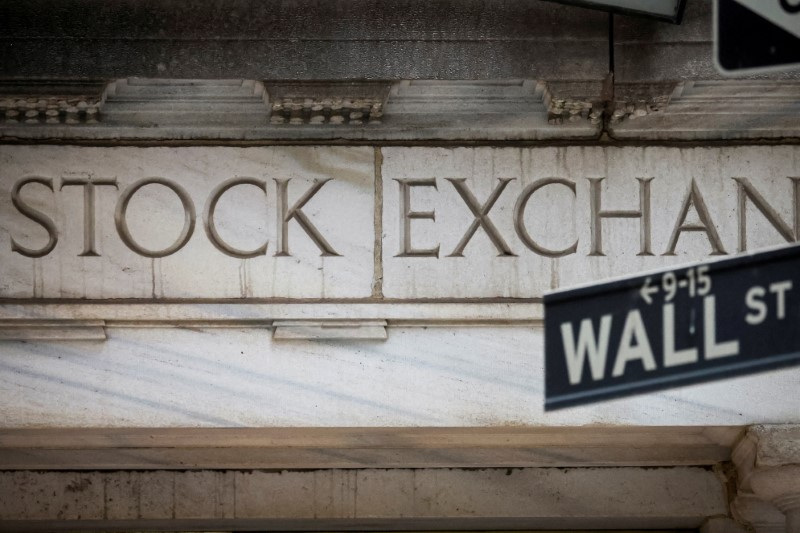By Naomi Rovnick
LONDON (Reuters) -Big investors are bracing for this summer's stock market rout to run into the autumn, fearing a broader wave of selling will follow the turmoil sparked by U.S. recession concerns and the Bank of Japan wrong-footing currency speculators.
The sudden reversal of crowded equity and foreign exchange trades that generated vicious feedback loops of price drops, volatility and hedge fund selling has eased, with world stocks almost 2% higher so far this week.
But asset managers overseeing hundreds of billions of dollars of investments said they were more likely to carry on selling stocks than buy back in, with signs of weakness in the U.S. jobs market and global consumer trends lowering the bar for market aftershocks.
The buy-the-dip mentality, where investors typically respond to selloffs by making recovery bets, has been replaced by fear.
"It's not simply now a large financial market accident, which maybe we could describe last week as. It's broader than that," said Mahmood Pradhan, a former IMF deputy director and head of global macro at the research arm of Amundi, Europe's largest fund manager.
He expects investors, who according to Bank of America have already cut equity positions and shifted increasingly into cash, to remain cautious.
Michael Kelly, head of multi-asset at PineBridge Investments, which oversees around $170 billion of client funds, is among those to have reduced his funds' stock market positions and he may pull back further.
"It's going to be very, very volatile in the next two months," he said.
A first U.S. rate cut, expected next month, might be too late to rescue the economy, he added.
Investors' global growth expectations have fallen to eight-month lows.
WHO SELLS NEXT?
A weak U.S. employment report and a shock BOJ rate hike drove the global stock market selloff as volatility linked and trend-following hedge funds headed for the exits and anxious investors herded into government bonds.
The BOJ hike wrecked billions of dollars worth of previously profitable trades where speculators had borrowed yen cheaply to buy higher-return assets like U.S. tech stocks.
About 70% of that carry trade has now been unwound, JP Morgan estimates. But money flows tied to yen-related positions are tough to measure and Amundi's Pradhan said the possibility of further unwinding is making people quite risk averse.
UBS European equity strategy head Gerry Fowler said hedge fund selling was likely over but slower moving mainstream investment managers often take four-to-six weeks to adjust their portfolios.
Those fund managers could be the next to sell, said Edmond de Rothschild Investment Partners multi-asset portfolio manager Marie de Leyssac, but would do so based on economic data.
While she doesn't see a savage U.S. slowdown as likely, she wasn't buying stocks, instead preferring put options, which insure against equity losses by paying out when markets fall.
Pension funds would also further sell equity exposure and move into fixed income, Goldman Sachs strategist Scott Rubner said in a note, adding that the second half of September has been the worst period of the year for Wall Street since 1950.
TURBULENCE
Russell Investments chief U.S. investment strategist Paul Eitelman said another weak U.S. jobs report would have the potential to spark fresh volatility.
Federal Reserve chair Jerome Powell's speech at next week's annual Jackson Hole central bank conference and artificial intelligence giant Nvidia (NASDAQ:NVDA)'s Aug. 28 earnings report are other market risk events.
"Volatility makes it hard to increase exposure even if you think it fundamentally makes sense," Pictet Asset Management senior multi-asset strategist Arun Sai said.
Money managers' risk mandates tend to prevent them from buying equities when prices are fluctuating widely.
The VIX measure of expected volatility on Wall Street's S&P 500 and its European equivalent hit multi-year highs last week before easing but a related index continues to send warning signals.

The VVIX, another options market gauge that rises when traders expect the VIX itself to be turbulent, is trading above the 100 mark, suggesting the market's wild ride is not yet over.
"Until you see the VVIX get below 100 you should have it on your radar. It is the key metric at this point," Citi's head of equity trading strategy Stuart Kaiser said.